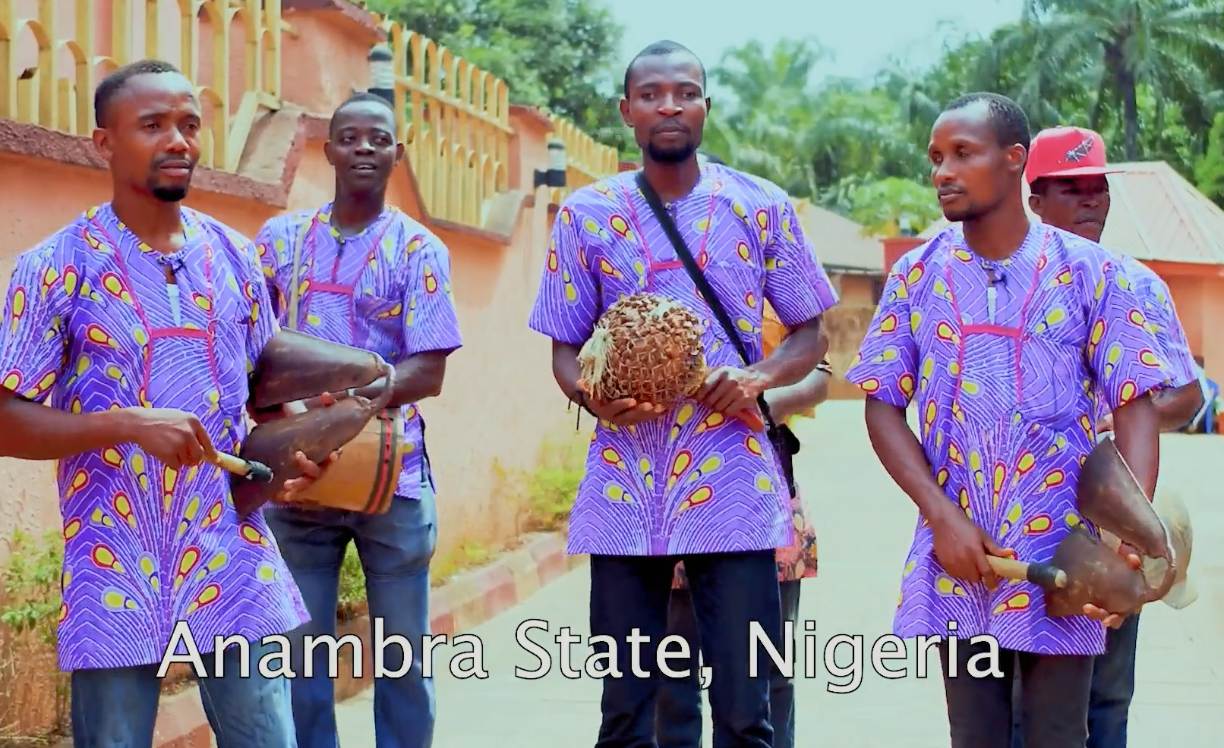Back To Blog
Melodic Language and Linguistic Melodies: Text Setting in Ìgbò
April 15, 2021Written by: Morehouse College
There are no other sense-altering aspects of culture that equate with language’s effect on aural perception (hearing). Increased sensitivity to pitch is a cognitive characteristic in the 60% of the world’s ethnolinguistic cultures that speak tone languages (Yip 2002). Lexical tone is a pitch contrast akin to the contour of a melody that distinguishes between words. An example is [íké] (high-high, like a repeated note) and [íkè] (high-low, like a falling interval) which forms a minimal pair between the Ìgbò words for strength and buttocks. Being a tone language speaker also impacts ways of musicking, especially singing. This is the case in sub-Saharan Africa, where “language and music are tied, as if by an umbilical cord” (Agawu 2016:113).
A favorite tool for evangelism among 19th- and 20th-century European missionaries in West Africa was to translate European hymn texts into the language of the missionized and teach them to sing the translation to the original hymn tune. An example included in the video is “All hail the power of Jesus’ name” which is often sung to the Coronation hymn tune by Oliver Holden (1792). Unfortunately, early missionaries would translate the texts metrically (to preserve the number of syllables) but had no understanding of the necessary tone.
Because of the link between lyrics and melody in tone languages, composers of vocal music in tone languages have argued that one should not compose vocal music in isolation from text or vice-versa. In 1974, Laz Ekwueme, a doctoral advisee of Allen Forte, published an article on Ìgbò text setting and harmonization. In addition to parallel harmony, Ekwueme recommends staggering text (as in European polyphony or African call-and-response) and using alliterative sounds (vocables and onomatopoeia) in subordinate voices.
Drawing on field recordings gathered in Nigeria from 2011–2020 by the authors, and commentary by Ekwueme and Dr. Christian Onyeji, this SMT-V article studies the phenomenon of “tone-and-tune” in Ìgbò culture.
*****
Compositions by Laz Èkwúèmé, Sam Òjúkwū, Christian Ònyéji, Joshua Úzọ̀ígwē.
Commentary by Laz Èkwúèmé, Christian Ònyéji.
Performances by Ogene Uzodinma, Laz Ekwueme Chorale, Agbani-Nguru Ikorodo, Lagos City Chorale, Elizabeth Ime Ònyéji, University of Lagos Choir, Morehouse College Glee Club.
Video scores by Ebruphiyor Omodoro.
******
Works cited:
Agawu, Kofi. Representing African Music. New York: Routledge, 2014.
Agawu, Kofi.The African imagination in music. Oxford University Press, 2016.
Carter-Enyi, Aaron. "Contour levels: an abstraction of pitch space based on African tone systems." Ph.D. diss., The Ohio State University, 2016
Carter-Enyi, Quintina, and Aaron Carter-Enyi. "Nwányī n'ákw'ákwà: Ìgbò Tongue Twister." Africana Digital Ethnography Project, 28 (2017). digitalcommons.auctr.edu/adept/28/
Ekwueme, Laz. “Ibo Choral Music: Its Theory and Practice.” Ph.D. diss., Yale, 1972.
Ekwueme, Laz. “Concepts of African musical theory." Journal of Black Studies 5/1 (1974): 35–64.
Ekwueme, Laz. "Linguistic determinants of some Igbo musical properties." Journal of African Studies 1/ 3 (1974): 335.
Onyeji, Christian. "Research-composition: A proposition for the teaching of composition from the traditional perspective." Emerging Solutions for Musical Arts Education in Africa (2005): 250–66.
******
Field recordings and interviews are provided by the Africana Digital Ethnography Project (ADEPt), with support from the American Council of Learned Societies (ACLS), the Fulbright Program, and the National Endowment for the Humanities (NEH).
______
Aaron Carter-Ényì, Ph.D., is an assistant professor of music at Morehouse.




Tag(s):
Morehouse Faculty